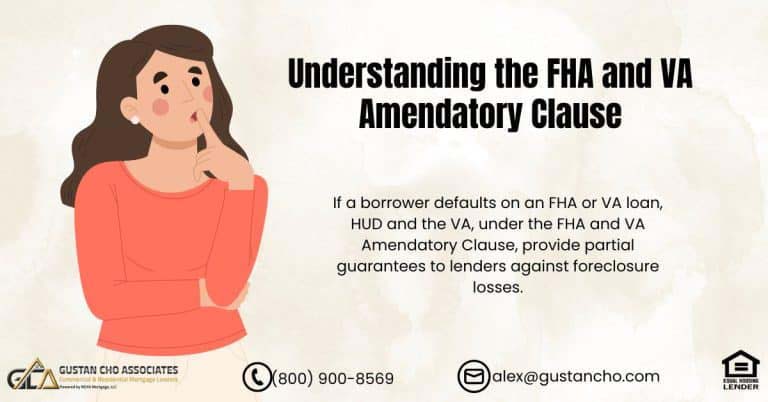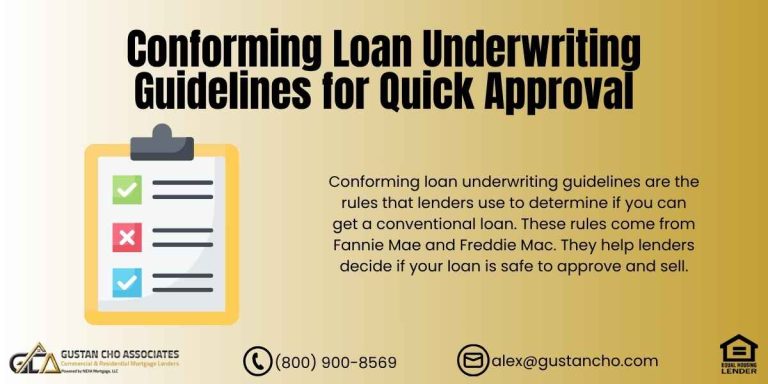This guide covers how underwriters qualify income to approve mortgage loans. Many mortgage loan applicants do not have the role of the underwriter and how underwriters qualify income. Mortgage loans must be documented in accordance with the mortgage guidelines of the individual loan programs. We will use FHA on this blog since FHA are the most popular loan in the United States.
Lenders on FHA loans will use HUD Guidelines and the automated findings of the Automated Underwriting System when qualifying mortgage loan applicants on FHA loans.
In general, most loan programs have similar requirements when calculating qualifying income and the way how underwriters qualify income. The only income that meets HUD guidelines and standards for stable income should be included in the AUS submission. Typically, FHA defines stable income as income that has been received for at least 2 years and is likely to continue for at least 3 years. In this article, we will cover and discuss how underwriters qualify income to approve mortgage loans.
How Underwriters Qualify Income With Borrowers?
Underwriters require the following:
- 2 Years Income Tax Returns
- 2 Years W2
- 30 days most recent check stubs
If borrowers’ income is not consistent or questionable, verification of employment needs to be done.
Verification of Mortgage Documents By Underwriters
All mortgage files will have a form that contains a certification form that all original documents provided by borrowers were examined by mortgage underwriters. A fully completed 4506-T is mandatory and required on all mortgage borrowers on all mortgage loan applications with the exception of Non-Income Qualifying Streamline Refinance Mortgage Loan Programs. Income Tax Return transcripts are mandatory and must be provided for each year of income documentation for that income to be valid.
Not Sure If Your Income Will Qualify? Let Us Check It
Salary, hourly, overtime, bonus, commission, self-employed—underwriters treat each one differently
Steps in The Mortgage Process
All qualifying income reported on the IRS transcript must support the qualified income entered in the Automated Underwriting System. There cannot be significant income discrepancies between the verified income in the mortgage applicant’s file and the tax transcripts from the Internal Revenue Service. The discrepancy or difference needs to be minor and reasonable. It needs to be supported by documentation on the mortgage applicant’s file. All Verbal Verification Of Employment needs to be initiated and verified by the mortgage closing department within 5 days of the home closing.
How Underwriters Qualify Income: Child Support, Alimony, Maintenance Income?
Alternative income such as child support income, alimony income, and maintenance income may be used as qualified income. However in order to be considered qualified income, the following needs to apply: Payments need to likely be received by the borrower for the first three years. Needs to be stated on the divorce decree, legal written separation agreement, court order, voluntary written agreement.
How Underwriters Qualify Income: Commission Income
All commissioned income wage earners cannot qualify for any types of mortgage loans unless they have two-year history as a commissioned income wage earner. All income for the past two years needs to be averaged. Borrowers need to provide copies of signed income tax returns for the previous two years and most recent paycheck stubs
If the commission income shows a decrease from one year to the next and/or previous year, there need to be good compensating factors in order to be able to use the income
In the event, if the commission income is less than two years, the mortgage underwriter may be able to approve the mortgage loan if there is significant documentation that the borrowers’ income will likely to continue for the next years. All un-reimbursed business expenses from tax returns need to be deducted from borrower’s gross income.
Borrower Employed By Family Member
There are cases where borrowers work for family members. Mortgage underwriters will thoroughly review the relationship between the borrowers and the employer who is the family member. The borrower cannot have more than 25% ownership interest in the business. If that is the case, then the borrower is considered self-employed and the business returns will be required. As long as the borrower does not have 25% or more interest in the business, then the borrower will be treated as a self-employed borrower.
How Underwriters Qualify Income: Borrower Returning to Work
There are certain rules and regulations with gaps in employment and qualify for a mortgage. Gaps and Employment and qualifying for mortgage programs are similar to all loan programs. Borrowers with gaps in employment and who returns to work after an extended period of six or more month qualify for a mortgage loan.
The borrower will qualify for a mortgage if they have been employed in a full-time position for six or more months. Current employment is likely to continue for three years.
There is no waiting period requirement if the borrower with an extended period of unemployment of six or months returns back to their original job. All borrowers need to document two years of employment history. Any employment gaps that are greater than 30 days or more need a written letter of explanation by the borrower. If a borrower has been unemployed for less than six months and obtained new employment, then 30 days of paycheck stubs are required prior to issuance of clear to close by the underwriter. Allowances can be made for seasonal employment if documented.
How Underwriters Qualify Income: Non-Taxable Income
The following non-taxable income can be used if and only if the likely of three years continuation is likely:
- Child Support Income
- Public Assistance Income
- Foster Care Income
- Disability Income
If the source of the above income is not taxable to federal income taxes, the income can be grossed up 15%.
Rental and Boarders Income as Qualified Income
Rental Income and Boarders Income can be used as qualified income if the borrower has declared it on their income tax returns as income for the past two years.
Departing Property Income
Rental Income from an exiting property can be used. If the homeowner of the departing property has at least 25% equity or 75% LTV. This value needs to be determined by a home appraisal. Maximum 75% of potential rental income determined by the appraisal of the departing property can be used.
Self-Employed or 1099? Make Your Income Work for You
Tax returns, write-offs, and bank statements can scare some lenders—but not us
NON-QM Loans and Bank Statement Loans For Self Employed Borrowers
Non-QM Loans and Bank Statement Loans for self-employed borrowers are alternative financing programs. NON-QM Loans do not require any waiting period after bankruptcy and foreclosure.
Bank Statement Loan for self-employed borrowers is loan programs where no tax returns are required. 24 months bank statements of self employed borrowers is used to calculate income.
If 24 months of bank statements are used, then half of the deposits will be averaged to calculate monthly income. If 24 months personal bank statements are averaged, then 100% of the deposits can be averaged to calculate monthly income. Borrowers with any questions on this blog can contact us at Gustan Cho Associates at 800-900-8569 or text us for faster response. Or borrowers can email us at alex@gustancho.com.








